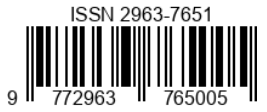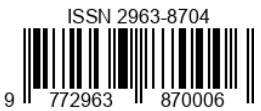Sistem Pembagian Warisan, Berdasarkan Hukum Adat Kletek Taruik, di Desa Alas, Kecamatan Kobalima Timur, Kabupaten Malaka
DOI:
https://doi.org/10.55606/jhpis.v3i1.3193Keywords:
Division, Heritage, Custom, Response, CommunityAbstract
This study aims to determine the inheritance distribution system based on Kletek Taruik customary law, in Alas Village, East Kobalima District, Malaka Regency and the current community attitude towards the inheritance distribution system, based on Kletek Taruik customary law, in Alas Village, East Kobalima District, Malaka Regency. The research method used in this study is empirical legal research. The sources and types of data in this study are primary data obtained from the results of field studies with interviews. Secondary data were obtained from literature studies. The data obtained is then processed by checking and correcting the data. After the data is processed then analyzed qualitatively. Based on the results of research and discussion, it can be concluded that the community in Alas Village, East Kobalima District, Malaka Regency, adheres to the matrilineal principle in the distribution of inheritance property, where more inheritance for daughters or also called heirs are daughters, because girls are members of the tribe who will continue the descendants of the heirs, while the son even though he is the eldest but he only helps manage or process The inheritance, because the daughter is considered more responsible in taking care of the inheritance of her parents than the son who will submit to his wife's family. The community in Alas Village, East Kobalima District, Malaka Regency, is very accepting of the prevailing customary rules where girls have full rights to their outgoing customary inheritance, but it does not rule out the possibility for sons to also receive inheritance from both parents based on mutual agreement.
Downloads
References
Amiruddin dan Zainal Asikin. 2006. Pengantar Metode Penelitian Hukum. Jakarta: Rajawali.
Ansori, Abdul Ghofur. 2005. Filsafat Hukum Kewarisan Bilateral Hazairin. Yogyakarta: UII Press.
Marzuki, Peter Mahmud. 2008. Penelitian Hukum. Jakarta: Prenada Media Group
Nangka, Bravo. "Penyelesaian Sengketa Berdasarkan Hukum Waris Adat Berdasarkan Sistem Kekerabatan." LEX PRIVATUM 7, no. 3 (2019).
Puspasari, Ellyne Dwi. 2018. Pemahaman Seputar Hukum Waris Adat Di Indonesia. Jakarta: Prenada Media Group.
Rato, Dominikus. 2014. Hukum Adat Di Indonesia (Suatu Pengantar). Surabaya: Laksbang Justitia
Soekanto Soerjono, (2013). Hukum Adat Indonesia, Penerbit Universitas Indonesia. Jakarta.
Suparman, Eman. 2018. Hukum Waris Indonesia Dalam Perspektif Islam, Adat. Bandung: PT Refika Aditama.
Van Dijk, R.2006. Pengantar Hukum Adat Indonesia, Terjemahan A. Soehardi. Bandung: Mandar Maju.
Wantaka, Agus, Abdul Rosyid, and Eka Sakti Habibullah. "Pembagian Warisan dalam Perspektif Hukum Islam Dan Hukum Adat Jawa (Studi Komparasi)." Prosa AS: Prosiding Al Hidayah Ahwal Asy-Syakhshiyyah 1, no. 1 (2018): 13-33
Wulansari, Dewi. 2014. Hukum Adat Indonesia-Suatu Pengantar. Bandung: PT Refika
Zainuddin, Ali. 2008. Pelaksanaan Hukum Waris Adat di Indonesia. Jakarta: Sinar Grafika
Downloads
Published
How to Cite
Issue
Section
License
Copyright (c) 2023 JURNAL HUKUM, POLITIK DAN ILMU SOSIAL

This work is licensed under a Creative Commons Attribution-NonCommercial-ShareAlike 4.0 International License.








